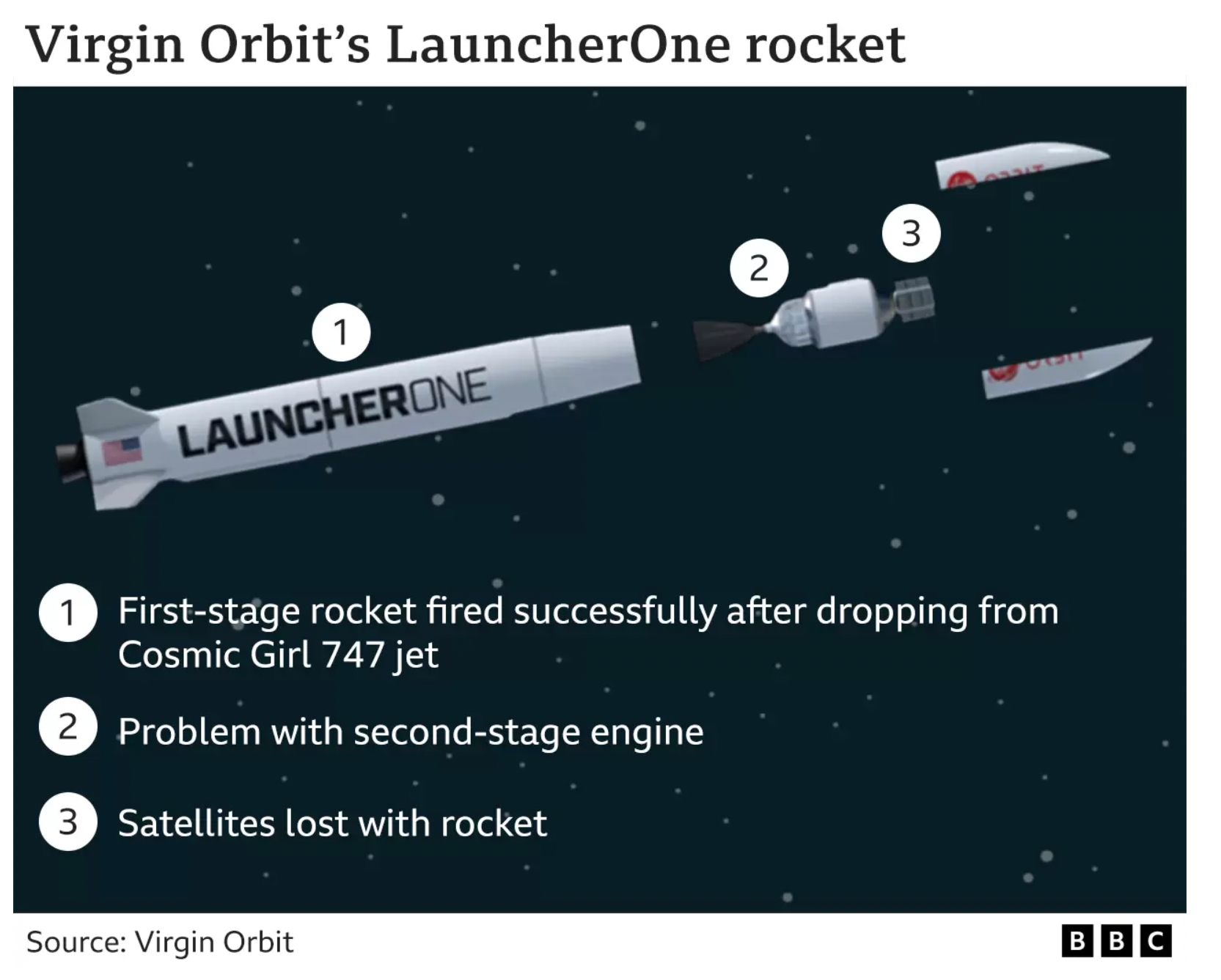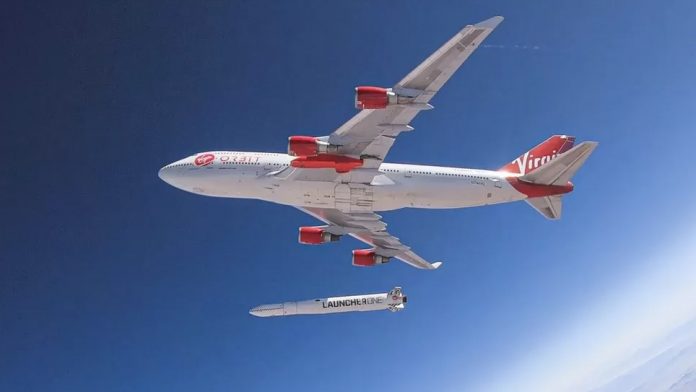Virgin Orbit’s Cornwall rocket launch fails and burns in the atmosphere casting serious doubts about the future of Sir Richard Branson’s mission
The Uk’s first rocket, “LauncherOne”, taking satellites into space, has suffered an anomaly and failed – putting a sudden end to the mission.
This first venture into orbital launch from UK territory is using an American company, Virgin Orbit, which was founded by Sir Richard Branson.
The plan was for Virgin Orbit’s repurposed 747 jumbo jet – Cosmic Girl – to take off with the LauncherOne rocket attached beneath its wing. Upon reaching a height of 35,000ft, the rocket would detach and blast off at high speed, putting nine satellites into orbit at an altitude of 555km.
The Cornwall rocket launch was an opportunity for Virgin Orbit to show off to investors, but the failure has led to its tanking as much as a third in after-hours trading. It’s expected to cost Virgin Orbit and its owner Sir Richard Branson $200m.
What went wrong with the Cornwall rocket launch?
The rocket and the nine satellites it was carrying burned up in the atmosphere after the launch failed, says the New Scientist.
The rocket ignited and appeared to be ascending correctly. But word then came from the company that the rocket had suffered an “anomaly”, causing the rocket and the satellites it was carrying to be lost.

What have people had to say about the UK’s first rocket Cornwall rocket launch failure?
Naturally, there’s been a lot of disappointment and sadness – but thankfully, no one was injured or killed.
‘It is absolutely gutting’
Melissa Thorpe, head of UK Spaceport, commented, “We put so much into this, everybody has and we’re like a big family. So it is absolutely gutting.”
The first ever satellite mission launched from UK soil has ended in failure.
Virgin Orbit said the rocket launched from a Jumbo jet suffered an 'anomaly'.
Melissa Thorpe from Spaceport Cornwall spoke to #BBCBreakfasthttps://t.co/Pk0hLNtALN pic.twitter.com/2bJxSrelL6
— BBC Breakfast (@BBCBreakfast) January 10, 2023
What does this mean for the future of UK space research and exploration?
In recent weeks the mission had been headlined as a major milestone for UK space, “marking the birth of a home-grown launch industry”. According to the team, the ambition is to turn the country into a global player – from manufacturing satellites to building rockets and creating new spaceports.
Deputy CEO of the UK Space Agency, Ian Annett, has predicted further launches within the next 12 months, stating, “We get up, we go back, we try again, that’s what defines us,” he told BBC Radio 4’s Today programme.











